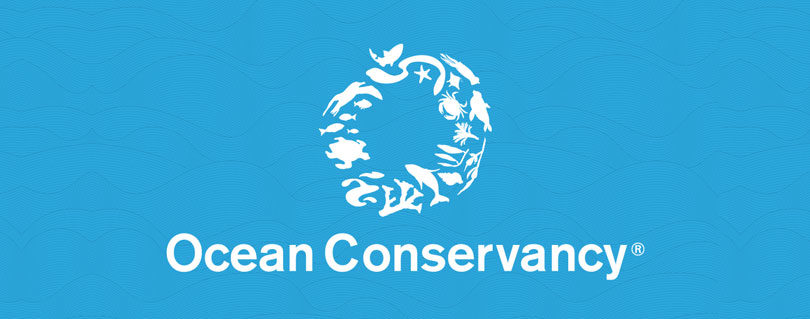Q & A with Environmental Journalist Mona Samari
Published by Ocean Conservancy
The Ocean Sciences Meeting in Portland, Oregon, had a strong focus on science and communication. While I was there, I spoke with someone whose work relies on both. Mona Samari is an investigative journalist from Tunisia who works on ocean issues. Samari answered several questions about what motivates her.
What do you currently do? How is your work connected to ocean questions?
I currently run a small project called the West African Fisheries and Ocean Science Journalism Training Program. I developed it with Internews Europe and the Earth Journalism Network, and it received funding support from the Adessium Foundation. It aims to empower West African environmental journalists to expertly address overfishing by giving them the necessary tools—through story grants, training materials workshops and mentorship—to cover these issues through various prisms, including its socio-economic impact on coastal communities.
We work to facilitate knowledge transfer between ocean scientists and environmental journalists in the countries we are building partnerships with. We like to include ocean scientists into the workshops we hold for journalists—for example, in Ghana, we had a local scientist accompany one of the groups to help identify juvenile catches. He provided the journalists with local contacts within the fishing community that they were able to interview.
In a way, the role of journalists is to make the information provided by scientists more accessible for the general public—ocean journalists can play a key role in helping to “translate” science language into everyday language that people can understand. But first, they have to grasp it themselves, which is why we are running these programs.
Ocean stories are a hard sell for news editors. There tends to be a lack of appeal around a fisheries story—so as part of the program, we provide small grants for fisheries stories. This enables journalists to show their editors that an ocean story can be compelling, with a strong human angle. We have some great investigative stories in the pipeline—including looking at the impact of fishmeal production on small pelagic [fish], transhipment issues, fishing licenses and other key issues affecting the region. We always encourage our journalists to capture the human stories of ocean degradation effects—on families, on whole fishing communities and even on other evolving issues happening in conjunction with overfishing, such as an increase in human trafficking within certain fishing communities. West Africa is a hotbed of talent—I am always inspired and humbled by what the journalists propose despite some of the difficult conditions they work in.
Some of the ocean stories produced thus far can be accessed here:
How did you get interested in ocean issues?
Apart from the fact that I have always loved the ocean, from a career perspective, I was working in the human rights sector for over ten years and wanted a change. My first ocean project was working as part of the Shark Alliance back in 2007 and ever since then, I worked as part of a number of ocean coalition teams. After attending the Rio Summit in 2012, and with the Tunisian revolution having opened up the country to new possibilities, I saw that ocean and environment issues were going to become increasingly side-lined in the Arab world. This inspired me to apply for a small grant with the Earth Journalism Network to set up a network of environment and ocean journalists in Tunisia. This was the beginning of my really trying to fill in the gap between the ocean and media communities, with the need for increasing transparency of ocean issues through media coverage as a bridge to improve governance.
You operate in very different environments—from coastal West Africa to London. How do you connect these different contexts?
The poet Keats once used the term “negative capability” to describe the ability to be in uncertainties. Most of my work is done on the field and so I have learnt to adapt quickly to different environments. Maintaining inner balance and strengthening the inner core—your inner grit as my yoga teacher would call it—is what allows one to be able to operate in different and unpredictable contexts more effectively. That, and not taking yourself too seriously and enjoying what you do.
What advice do you have for young people, especially those from underrepresented communities, working in the science-policy world?
Use your unique background and your ability to grasp the complex and overlapping issues within your communities as an advantage. If you identify a gap that nobody else is addressing, create a project with other partners willing to support you and apply for a small grant to get it off the ground. Being able to speak a different language—especially a UN language—is also a huge advantage.
Also, it is hugely important to gain experience of working effectively within a team. It is no use being brilliant at what you do if nobody wants to work with you! Always find good mentors who are willing to give you honest feedback and good opportunities for development and keep them updated on your progress or share any key milestones you have achieved with them.
People never mention that youth and lack of work experience can also be a huge disadvantage, perhaps bigger than race, gender or ethnic background—and also when combined with these, as employers are always favouring those with experience—so it is very important to gain field experience at any opportunity and add this early on in your career, and to always incorporate as much work experience as you can.
The post Q & A with Environmental Journalist Mona Samari appeared first on Ocean Conservancy.
Read the full article at: https://oceanconservancy.org/blog/2018/02/22/q-environmental-journalist-mona-samari/


